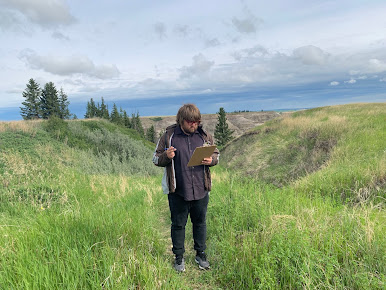Cenizas, Cynthia Guardado
University
of Arizona Press, 2022
In Cenizas, Cynthia Guardado conducts a forceful display of poetry’s ability to bear witness. With subtlety and precision, the book reflects upon the poet’s family history and its deep interconnections with the Salvadoran civil war (in which the government of El Salvador, aided and abetted by the United States, conducted a sustained campaign of murder, torture, rape, and terror against the civilian population). Through its variety of poetic modes and across multiple speakers and languages, Cenizas functions as a kind of non-linear narrative epic, testifying to Guardado and her ancestors’ experience with admirable clarity. Saturated throughout is a particular bittersweet quality, a particular ache -- a steadfast awareness of beauty amidst the onslaught of evil and suffering.
The poems in Cenizas are clearly the product of a sustained, disciplined, and
thoroughly patient practice. Indeed, this is borne out by the manuscript having
won or contended for awards as early as 2016. Every piece of the book is pared
down to its absolute essentials, resulting in a degree of consistency and
cohesion which is truly remarkable. Lofty (though assuredly meaningful)
abstractions are juxtaposed effectively with concrete imagery -- the speaker’s “layers of memory” and their abuela
(grandmother) “frozen in the in-between” sit
alongside a beautiful description of a hard-boiled egg: “We eat through the darkness, pause / between bites to trickle chile
onto yolks.” (all of this from “Los Estados Is How I Forget”). Moments of
great familial joy stand in brutal contrast with abjection and death; in
“Diaspora,” the image of a bus ride as family reunion is immediately followed
by a bus halted by government militares, a passenger detained and left for
dead. Throughout the text, Guardado demonstrates an immense ability to draw out
the beauty of the mundane using spare language. Two of my favorite moments in Cenizas consisted of three-line images,
simple and yet truly arresting -- “I
kneel in front / of your open refrigerator / the day after Christmas.” (from
the beginning of “Before We Send My Cousin’s Body Back to El Salvador”) and “This district desolate, / except for the
occasional / call of a voice, sits in darkness.” (from “Your Tía Finds You
Un Taxi Seguro”). In these images and many others, Guardado captures both the
magnificence and the devastation of her subject.
The meticulous quality of Cenizas can
also be seen in the structural decisions made by the poet, which above all are
characterised by clarity of purpose. At the level of both the language used as
well as spacing, punctuation and line placement, each piece is designed to
produce a reading experience which is in harmony with the poem’s subject and
emotional resonances. In “Ars Poetica,” an opening section exudes a slow,
methodical feeling, with entire sentences kept to single lines (“I say, There is so much I want to know. / I
feel as if you are the only one with answers.”). In sharp contrast, the
poem’s second section abandons punctuation, de-capitalizes the first-person
pronoun, and employs anaphora in order to communicate a frantic outpouring of
emotion (“i cannot explain to her / how
each night i see all of our ghosts / how our ancestors hide in the planes / how
they call me back to find the truth”). The entire text is filled with similar
instances of intentionality, a fact which greatly contributes to the overall
quality of the book.
There is undoubtedly a great stylistic difficulty to writing about trauma and upheaval, and a myriad set of challenges to face when utilising poetry as testament. Guardado surpasses every one of these obstacles with Cenizas, and in so doing has crafted a work of unmitigated beauty and urgency. In the second poem of the text (“The Historian”), the poet tells the reader that “I don’t need to prove to you why we are important.”. While this would be true on its face irrespective of the quality of the work that followed, there is a particular joyous quality in the enjoyment of this masterful book, which for the reader brings the reality of that statement into resplendent self-evidence.
Ethan Vilu (she/they) is a poet and editor from Calgary, Alberta. Her longsheet A Decision Re: Zurich was published by The Blasted Tree in 2020, and her chapbook Drawings From Before The Red Year is forthcoming with Anstruther Press. Ethan currently serves as both poetry editor and circulation manager for filling Station Magazine. She is still looking for a good used copy of Money Secrets at the Racetrack by Barry Meadow.















